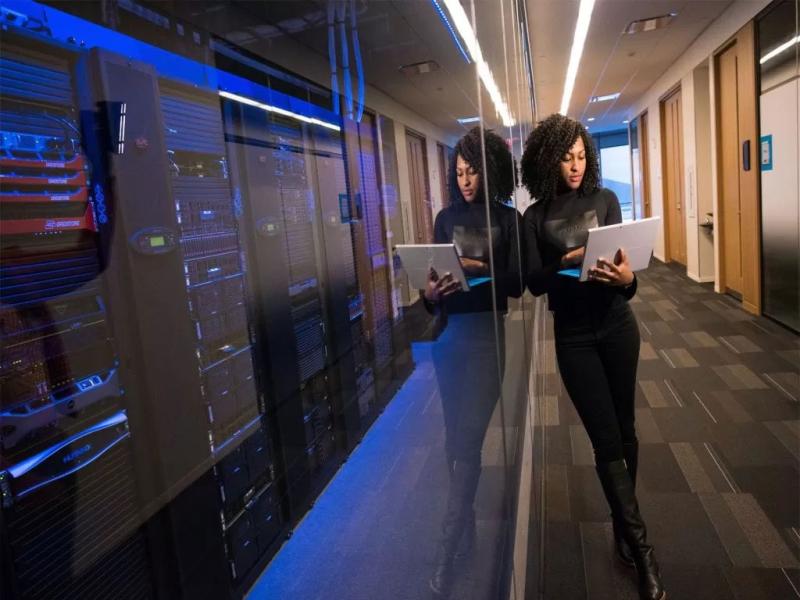In previous articles we explored how businesses and customers alike have changed during lockdown. Some have hibernated; others have metamorphosed. As a result, some have been better placed than others to take advantage of the opportunities that are the flipside of any crisis. We posed the options as hunkering down or pivoting.
But what of the people who haven’t had the luxury of choice? Last July the IMF warned that the pandemic threatened 30 years of socioeconomic progress for women. Due to persistent gender stereotypes and expectations, women still generally get paid less, hold less secure jobs, and take on the bulk of caring responsibilities.
These issues can constrain their employment progression. Crucially, they can also constrain their self-employment outcomes. We might therefore reasonably assume that women are likely to bear the brunt when a major disruptive event such as a global pandemic hits.
Sure enough, this has been the case. Because of their size and the sectors in which they traditionally operate, women-owned businesses have been more likely to be adversely affected by COVID-19’s far-reaching consequences.
Significantly, many of the additional problems they face haven’t been addressed by policymakers. A substantial number of women-owned businesses have actually been ineligible for government support.
And yet, in spite of these challenges, many have continued to demonstrate notable strength and adaptability. Our research on women’s enterprise in reaction to this and other crisis contexts highlights the range of experiences and strategic responses.
Consider, for example, a study focused on refugee women entrepreneurs who have travelled from the global south to the UK, where they face prolonged periods of being unable to work. Our research shows how these individuals have drawn on profound reserves of resilience to establish successful enterprises and provide for their families.
Most have also engaged in community, voluntary and social enterprise activity, thereby contributing to socioeconomic development. One now has several employees, has won a prestigious industry award – accompanied by a sizeable cash sum – and has written a book.
Perhaps we shouldn’t be surprised that these women have persevered throughout the pandemic. After all, implementing innovative and determined responses to unfolding circumstances has often been fundamental to their careers.
And what of the wider community of women entrepreneurs, against a background for many of no furlough, no childcare and no eligibility for financial support measures? Have these women been able to exhibit the same capacity to adjust and press on amid the myriad difficulties of lockdown?
Stuart Lewis, founder of online jobs site Rest Less, summed up the reaction of many in an interview in the Guardian earlier this year. “The cards may have been stacked against women,” he said, “but out of the doom and desperation we are seeing some extraordinary examples of strength, with some small pockets of hope and inspiration emerging.”
Our research confirms that a lack of available childcare, coupled with a requirement to home-school, has impacted on women entrepreneurs with young children. It has restricted their ability to work in or on their businesses – even for the owners of enterprises that have not had to close.
Many women been forced to shut their businesses temporarily and endeavour to weather the storm, while others have even been forced to shut permanently – but many have been upskilling, strategising, networking and displaying great ingenuity to increase not just the likelihood of business survival but future growth.
Some have been gaining additional qualifications. Others have been starting new enterprises as “side-hustles” to maintain revenue and to diversify income streams to maximise sustainability going forward. Many have, indeed, pivoted – some on a temporary basis until their normal business activities can resume, others with an eye on further expansion after gaining traction during the past year.
As we observed in earlier articles, one of the key lessons of the COVID-19 crisis has been that staying the same is very seldom an option. Many women entrepreneurs know this truth only too well – and it seems that their capacity to reflect it remains largely undiminished even in the face of the most tumultuous upheaval of our age.
Dr Lorna Treanor is an Assistant Professor of Entrepreneurship and Innovation at Nottingham University Business School’s Haydn Green Institute for Innovation and Entrepreneurship (HGIIE). Paul Kirkham is a researcher in the field of entrepreneurial creativity and Ingenuity Learning Support Development Officer at HGIIE.
